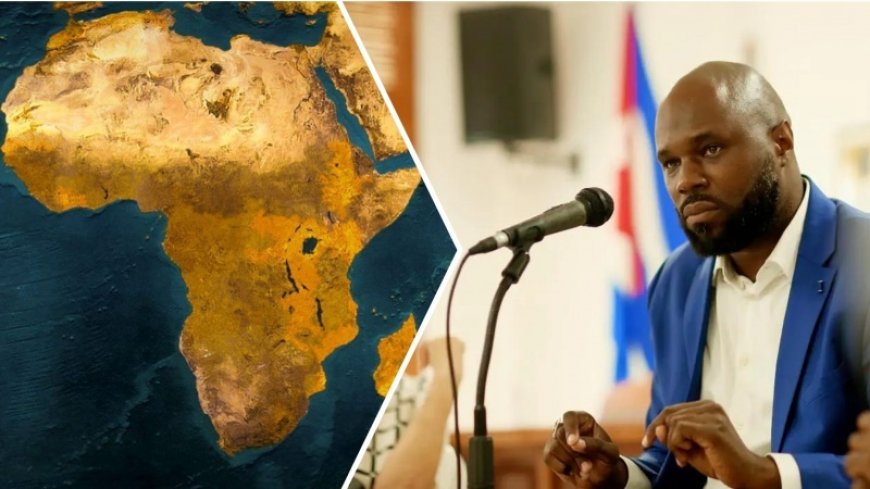Birth Signs of the Resistance Axis in African Nations
Developments along the African coastline indicate a decline in Western hegemony and a rise in the influence of Russia, Iran, and China, all striving to create a new global order.

Puppet regimes of the West across the African continent are rapidly dwindling, and the unity of North African coastal nations such as Mali, Burkina Faso, and Niger is likely to spearhead the resurgence of the resistance axis in Africa.
News outlet The Cradle reports that the emergence of resistance axes in various regions of the world is the result of a long and complex process dragging the world towards multipolarity.
These two issues - resistance against Western hegemony and the emergence of a multipolar world - complement each other entirely.
The resistance axis in the Middle East has inspired and instilled a spirit of resistance in the African coastal regions, stretching from west to east, from Senegal, Mali, Burkina Faso, and Niger to Chad, Sudan, and Eritrea.
The Urgency of Senegal's Elections Strengthens the African Resistance Axis
Unlike Niger, which seized power from the hands of Western neo-colonialism through a military coup, in Senegal, this process took place through general elections.
The resounding victory of Bassirou Diomaye Faye, 44, in the simultaneous elections in Senegal on March 24 has ushered the country into a new era.
As a former tax inspector who recently emerged from a two-week incarceration, Faye, a champion of Africa's marginalized, managed to topple the French puppet leader Macky Sall.
Senegal's new president now joins Ibrahim Traore, 36, in Burkina Faso, Abiy Ahmed, 47, in Ethiopia, Andry Rajoelina, 49, in Madagascar, and Julius Malema, 43, in South Africa, in the framework of a new era on this continent. The Pan-African youth generation is focusing on governance.
It seems that the main axis of this change is geo-economics. Senegal has transformed into one of the significant producers of oil and gas, and President Faye intends to renegotiate the country's mining and energy contracts with various parties, including British Petroleum (BP) and British gold mining operator Endeavor Mining.
Furthermore, Faye aims to replace the CFA franc, a tool of French colonization used in 14 African countries, and even seeks to create a new currency to reshape relations with French neo-colonialism, which is Senegal's major trading partner. Faye also seeks win-win partnerships with China.
US Fear over Niger's Proximity to Iran and Russia
Senegal's new president has yet to decide whether he will expel French forces from his country. If done so, it would be a tremendous blow to Paris, as President Emmanuel Macron considers Senegal a key player around Niger, Mali, and Burkina Faso, which have already distanced themselves from France.
These three countries recently formed a coastal states alliance, not only creating nightmares for France after several humiliations but also posing significant problems for the US, symbolizing a real defeat in Washington's military cooperation with Niger.
It can be assumed that US axis countries do not seriously consider Russia's and Africa's diplomatic processes, which involve key players from African coastal states to new BRICS members such as Egypt and Ethiopia.
For example, currently, the US, after canceling security and military cooperation contracts, must determine the exact timing of withdrawing its troops from Niger. In reality, the Pentagon can no longer be present in Niger, under the pretext of providing military training.
The US has two strategic bases in the cities of Agadez and Niamey, which have drained over $150 million from the Pentagon's budget for their construction. The US base in Niamey, completed in 2019, is led by an African-American commander.
Approximately 1,000 US troops are likely to leave Niger soon, and Americans are trying to prevent it. Last month, Molly Phee, the US Deputy Secretary of State for African Affairs, visited Niger twice.
It should be noted that losing the military base in Niamey could be interpreted as Niger's closeness to Russia and Iran, crucial for monitoring Bab El Mandeb. Therefore, in January 2024, a large Niger delegation visited Russia.
France's Humiliation and Potential US Responses
Puppet regimes of the West across the African continent have significantly declined, and the unity of African coastal nations, including Mali, Burkina Faso, and Niger, is likely to lead the resurgence of the African resistance axis.
On the other hand, Russia, diplomatically, and China, commercially, show particular attention to African nations as key players in the multipolar world system through increased strategic participation.
The presence of African country leaders, such as the charismatic Pan-African leader Kemi Seba from Benin, at multipolar world conferences in Moscow, also fits into this issue's framework.
France's absolute humiliation in the African coastal regions is likely one of the reasons for Macron's threat to send French troops to Ukraine and ignite Russophobia phenomena in Armenia.
From a historical perspective, African countries, once allies of the Soviet Union, are more flexible and consider the country a supporter of their natural resources, a role now assumed by China.
The unity of African coastal nations as a regional convergence platform has the prerequisites to play a transformative role.
Senegal's potential joining of this coalition, but Guinea, due to its geographical proximity to the sea, becomes a crucial country. This issue has led to the gradual dissolution of the Economic Community of West African States (ECOWAS) under Western-controlled countries.
However, we should never underestimate the power of Western hegemony. The comprehensive Pentagon program in Africa is designed to counter the influence of Russia, China, and Iran's multipolar ideas. However, now no country along the African coastline is willing to buy into the US "terrorism threat" card.
At the same time, Ivory Coast is considered more strategic for the US than Chad, as its territorial proximity to the coalition of African coastal states, and perhaps US terror drones at French military bases in Ivory Coast will monitor those coalition states. (HS)













































